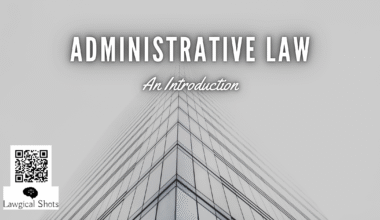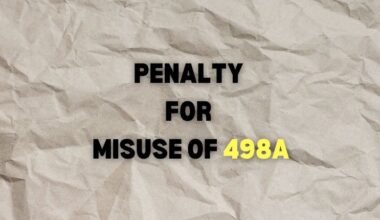Whenever someone mentions the Indian Legal System, people are quick at recalling the actor Sunny Deol’s famous dialogue from the 1993 movie Damini – Tarikh Pe Tarikh….. Tarikh Pe Tarikh! The dialogue aims to hint at the delay in Court Proceedings without the matter being heard. In legal jargon, this phenomenon is termed as “Adjournments”. Are Judges not willing to hear cases? Are lawyers not willing to bring quick relief for their clients? Who is actually at fault? Here, we aim at throwing some light at the actual reasons for Court Adjournments, and the person(s) at fault for this delay.
Adjournment in Civil Procedure Code
Order XVII of the Code of Civil Procedure, 1908 deals with adjournment in a civil suit. Older 17 Rule 1 states that the Court may grant adjournment for sufficient cause for a maximum of thrice.
Rule 1(2) of the same provides for imposing costs of adjournment in certain cases, since day-to-day hearing is required until all witnesses are examined. Adjournment may be given in exceptional cases, however, the same is not much practicable. It further restricts adjournments when party requests, unless they are able to show that the circumstances were beyond control. Rule 1(2) (c) makes it clear that the advocate being engaged in another court for the time being is no reason for Court adjournments. In case of an advocate being ill, the party should show scarcity of time for engaging another advocate. It even states that if a witness is available but advocate is not there for examining him/her, the Court may itself record statements and pass orders as it deems fit.
Practical Reasons for Court Adjournments
While the statutory restrictions reflect that adjournments are not the rule and the Court proceedings should proceed without delay, there are some practical reasons due to which adjournments in Courts are just inevitable. Such reasons have been explained below:
- Judge/Judicial Officer on Leave
When a Judge or Judicial/Presiding Officer is on leave due to medical or personal reasons, it is most likely that adjournment shall take place and the matter will be listed for hearing on a next date.
- Parties unavailable
When one of the parties to the case are unavailable due to unavoidable circumstances, and the proceeding requires their presence for examination/evidence, the Court may allow adjournment of the case in such a scenario. However, the advocate representing such party may have to prove to the Court the reason for such inability for appearance before the Court.
- Witness unavailable during Evidence Recording
When the Court case in question is at the Evidence stage and one or more witnesses are unavailable for whatever reasons, it may be one of the reasons for Court adjournments. The Court may schedule the next hearing on a further date when such witnesses may be stated to be available.
- Too many Witnesses
In case all the witnesses are available for Evidence but the list of witnesses is quite long to be concluded for the day, the matter may be adjourned and the rest of witnesses may be called on the next date.
- Unprepared Advocate
There are instances when the advocates are burdened with work pressure being underprepared, and it is the stage of arguments or alike, when the advocate himself/herself is the person who is required to make efforts for his/her client, in that case adjournment may be granted with mutual understanding of advocates and the Judge.
- Lawyer’s Strike
It is not so uncommon for lawyers to go on a strike, be it for safety reasons or any other matter due to which they start protesting. Credits to the unity of Legal Professionals, if lawyers in a Court go for strike, not a single matter can be heard by the Court. In such circumstances, the Court would grant adjournment for all the matters listed for the day.
- Court Adjourned due to Condolence
When one of the lawyers practising in the Court passes away, or it is the case of demise of one of their close relatives like spouse/parents/children, it is one of the practical reasons for adjournments in Courts. The Legal Fraternity being run on the basis of networking has to attend cremation and last rites of such persons. In order to avoid suffering by any of the attendees due to scheduled hearing, the Bar opts for Court adjournments.
- Under-staffed
Sometimes, the Courts are overburdened for the day due to unavailability of the Court Staff due to certain reasons. In such cases, if the proceedings cannot go on at their normal pace, the Court may grant adjournments for the day and list the matter on another date for the next hearing.
Indirect Reasons for Adjournments in Courts
Since we have gone through the adjournments reasons experienced commonly in practice, it is important to know the indirect reasons which affect the smooth functioning of the Courts and lead to frequent adjournments. Those are as follows:
- Procedural Requirements
There are several stages of a trial/Court proceeding, and several steps means that one gap may lead to the said process being halted. For example, if it is the stage of evidence in a Criminal Trial and the Forensic Science Laboratory (FSL) Report is yet to come, the Police may seek time to produce the same. In that case, the matter may be adjourned for another day.
- Abundance of Pending Matters/Litigation
There is one of the biggest reasons for Court adjournments which highly depends upon the number of pending cases before the Court. If a Court is burdened with 100 listings on a particular day, not all matters may get a chance to be heard the same day. Thus, adjournment is the only option left for the Court.
- Less Judicial Officers
It is quite often seen that the pendency of Court cases is often accredited to the vacancies pending for recruitment of Judges/Judicial Officers. It obviously is an indirect reason for adjournment of Court proceedings since the Courts are overloaded. Less number of Judges means more and more cases for the day. If there will be more Judges to deal with the matters, there may be some hope for pendency of cases in India.
- Laches on part of Government
The Government of India and States is one of the biggest litigants in India. While representing Union/State/UT, the Government pleaders often initiate proceedings without application of mind, as often highlighted by the Courts. There have been reports that often unnecessary appeals are made against convictions, bails, etc. by the Government without any sufficient cause. There are events which require urgent notice but the bureaucrats take their own sweet time to accomplish those tasks. This ignorance adds to the pendency and affects delivery of justice by the Courts. Eventually, it became a major reason for Court adjournments in India.
- Urgent/Directional Matters: Day-to-day hearings
There are times when the lower Courts are ordered by the Appellate Courts to take up day-to-day hearings in particular matters. If a case has to be closed sooner with frequent hearings, it is quite obvious that the rest of matters listed during this period will suffer. The Courts end up ordering adjournments to make space for the said case wherein higher Court ordered swift proceedings and decision.
- Special Duty of Judges
There are urgent Judicial tasks which require Judges to be tasked with Special Duty. When a particular Judge is engaged on a Special Duty in a High Profile case or any other judicial task, adjournment of case is quite unavoidable.
Tarikh Pe Tarikh – Inference
While people may hold the Judicial System incapable and responsible for all the pendency of Court cases, and the adjournments, it is crucial to have a reality check. The reasons for Court adjournments are several, since several stakeholders take part in administration of Justice. It is the Judges, Lawyers, Police, Government, Parties, Witnesses, and the list goes on. Thus, finding a single scapegoat does not help evade reality. There could be certain changes in the Indian Legal System which could help in making things better, and blaming is the last resort for any improvements.








